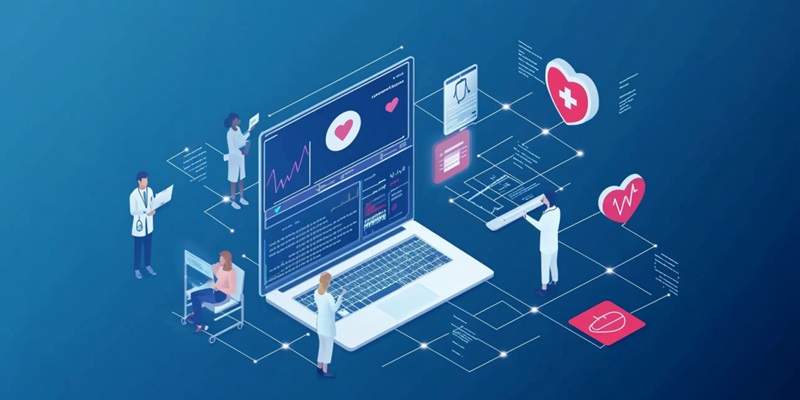In the era of digital transformation, one of the most significant changes in modern healthcare involves the integration of data and analytics to drive patient outcomes. This integration is revolutionizing patient care, optimizing operations, and enhancing clinical decision-making. The role that data specialists play in this transformation cannot be overstated. These professionals meticulously manage patient records and research databases, ensuring data integrity, which is crucial for healthcare providers to trust their insights. Vipin Gupta, an AI and data leader with 17 years of IT experience, has been instrumental in implementing data solutions tailored to address complex healthcare challenges. His work epitomizes the growing influence of data and analytics in the healthcare sector.
The Role of Data Specialists in Healthcare
Healthcare data specialists are on the frontline of ensuring data integrity, a fundamental aspect without which healthcare providers cannot rely on insights derived from data analytics. Gupta highlights the importance of meticulous data management practices. These specialists work collaboratively with stakeholders and enforce stringent data governance frameworks that comply with regulatory requirements. Such frameworks are vital for maintaining operational efficiency and building systems that are not only technically robust but also practically useful for healthcare providers. By collecting data from various sources, healthcare data specialists create detailed reports that aid in critical decision-making processes and elevate the quality of patient care.
The collaboration between data specialists and other stakeholders is essential for optimizing data systems, ensuring they address healthcare’s unique demands. By integrating clinical expertise with technical advancements, specialists develop analytics tools tailored specifically for healthcare. These tools take into account the complex nature of medical data, ensuring that systems improve patient outcomes and streamline operations. This fusion of skills enables healthcare organizations to tackle intricate challenges more effectively, turning data into a crucial asset in modern medical practice.
The Contribution of Advanced Analytics
Advanced analytics play a pivotal role in enhancing patient care and resource allocation within healthcare facilities. Data scientists, working alongside healthcare professionals, are developing predictive models that anticipate patient admissions and streamline resource planning. These models help improve patient care by enabling healthcare providers to allocate resources more efficiently and predict patient needs with greater accuracy. However, as Gupta notes, balancing technological advancements with regulatory adherence is crucial in ensuring data utility, security, and privacy. Compliance with privacy standards guarantees that sensitive patient information remains protected while still allowing for innovative medical practices.
Modern healthcare analytics range from basic reporting functions to sophisticated machine learning applications. Tools developed by data teams assess risks, optimize treatments, and forecast patient outcomes. This enables healthcare providers to offer more personalized care that is precisely attuned to individual patient needs. By leveraging data-driven insights, clinicians can make more informed decisions regarding treatments and care strategies. The continued evolution of these tools underscores the transformative power of data and analytics in the medical field, paving the way for increasingly precise and data-centric healthcare practices.
The Future of Data-Driven Decision Making
In today’s digital transformation era, a key shift in healthcare is the integration of data and analytics to improve patient outcomes. This integration is revolutionizing patient care by optimizing operations and enhancing clinical decision-making. The importance of data specialists in this transformation cannot be overstated. These experts meticulously manage patient records and research databases, ensuring data integrity, which is vital for healthcare providers to trust their insights. One notable figure in this field is Vipin Gupta, an AI and data leader with 17 years of IT experience. Vipin has been pivotal in implementing data solutions that tackle intricate healthcare challenges. His efforts exemplify the increasing impact of data and analytics in healthcare, highlighting how essential these technologies have become in shaping a more efficient and effective healthcare system. As data and analytics continue to evolve, their role in healthcare is expected to grow, driving even more advancements and improvements in patient care.

